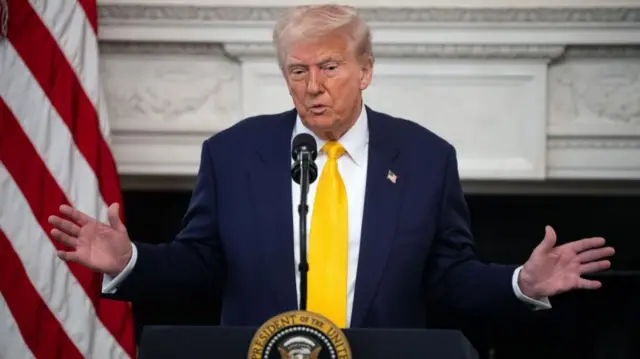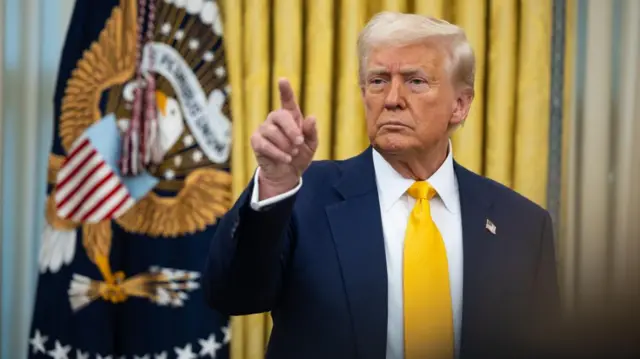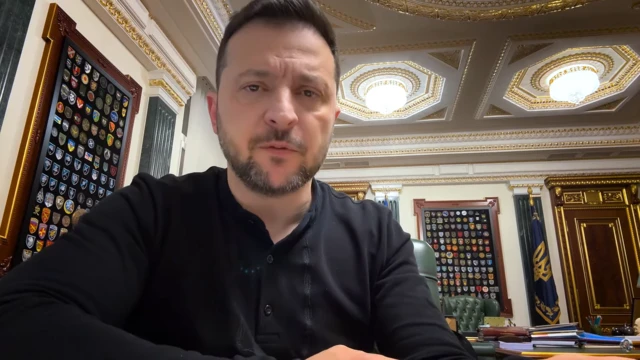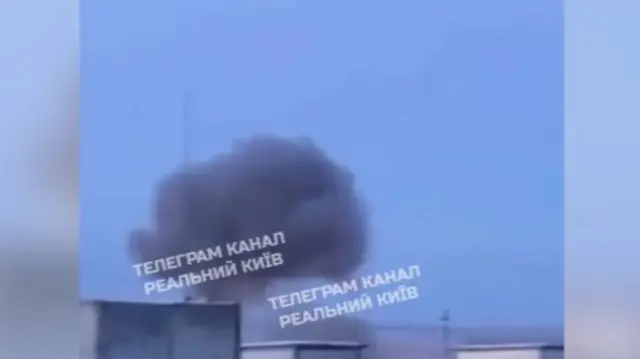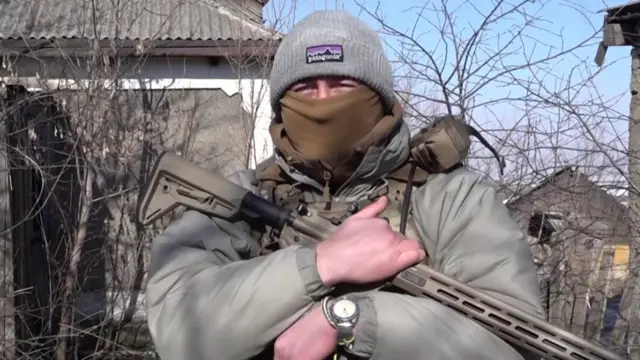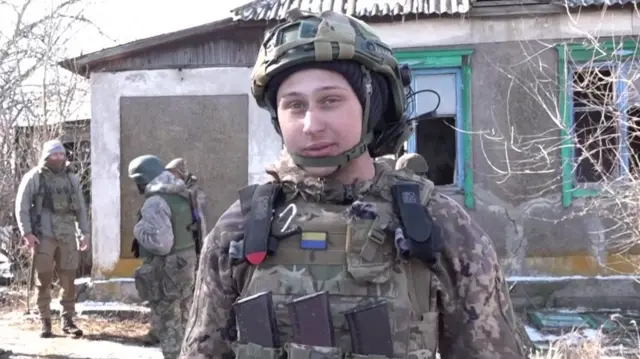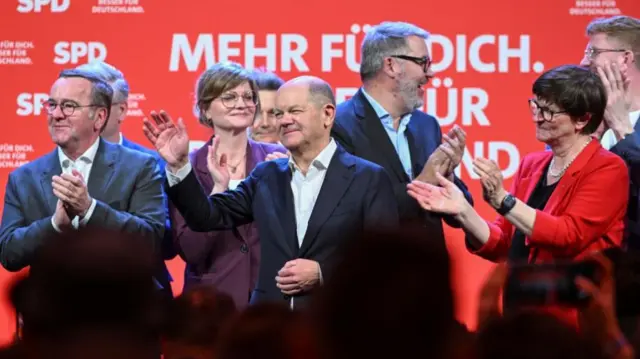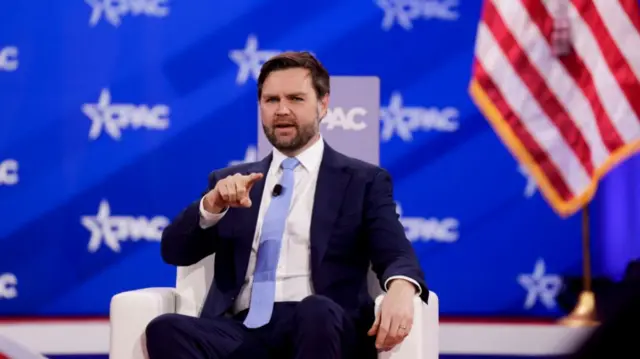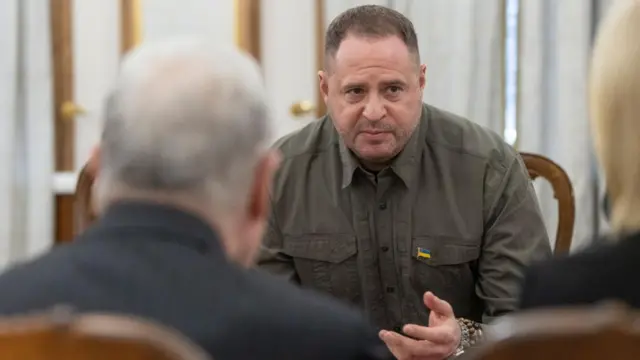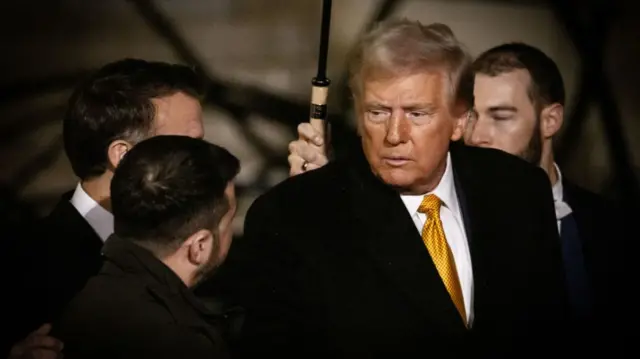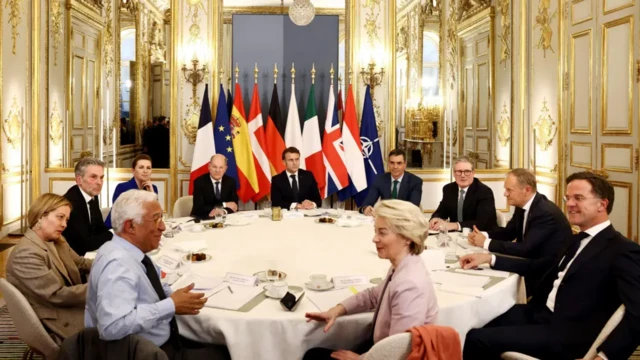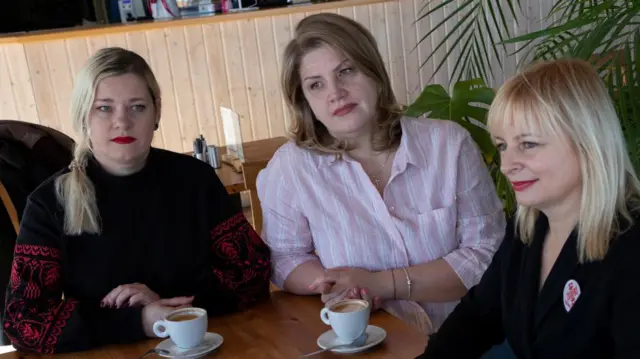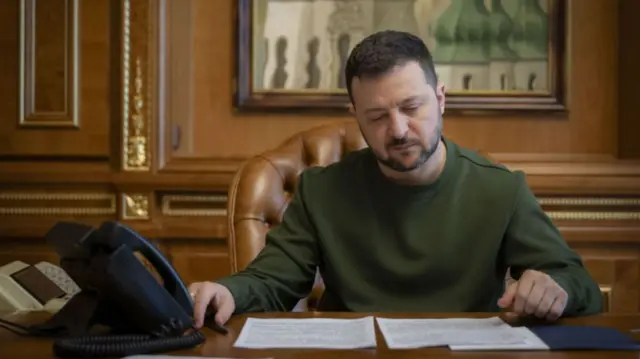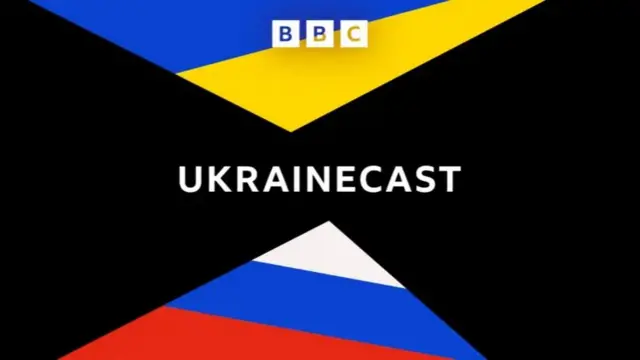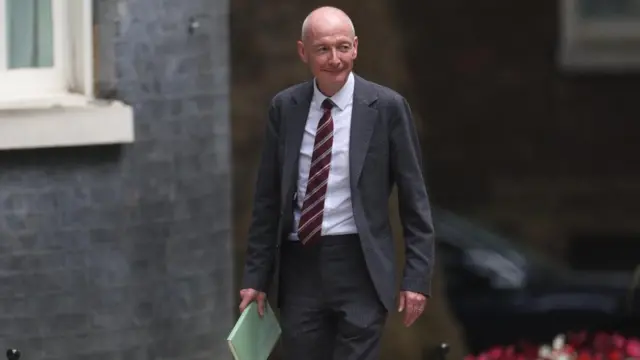Ukrainians more worried than ever about pressure they're underpublished at 22:23 GMT 21 February
 Jeremy Bowen
Jeremy Bowen
International Editor
What a tumultuous week it’s been.
All those who are worried about the health of the transatlantic alliance will be even more worried after President Trump's comments this afternoon.
I think Ukrainians are more worried than ever about the pressure they’re being put under and now, of course, supporters of President Trump - apologists for the way he works - say that he throws out verbal gambits to make people drop long-held positions to make a deal.
I’m not so sure about this because he keeps coming back to them, he keeps repeating them, and he is the President of the United States, so his words matter.
Now, as for the Ukrainians, deputy head of Ukraine's presidential office Igor Brusylo was saying it’s starting to feel once again like three years ago, in 2022, when the full-scale invasion happened. In other words, when the independence and sovereignty of Ukraine felt very much in jeopardy.
For them, right now, it's deja vu, Brusylo said.
